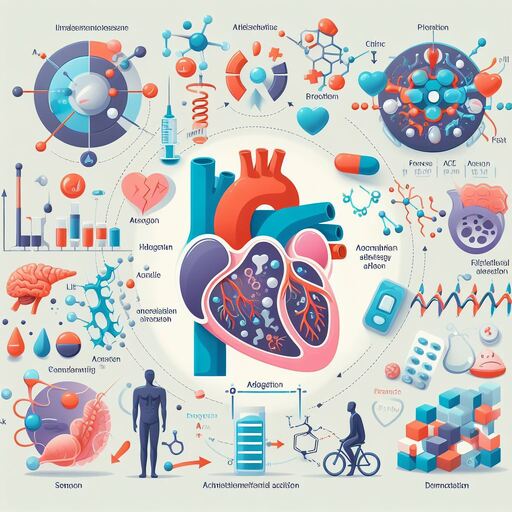Diet and Atrial Fibrillation
Diet and Atrial Fibrillation
Atrial fibrillation (AF) is a common heart condition that affects the upper chambers of the heart. While there is no specific diet that can prevent or cure AF, certain foods and nutrients may help reduce the risk of developing the condition or worsen existing symptoms. Here are some tips for managing AF through diet:
1. Eat a balanced diet: A healthy diet that includes a variety of fruits, vegetables, whole grains, lean protein sources, and low-fat dairy products can help keep the heart healthy and reduce the risk of developing AF.
2. Limit sodium intake: High levels of sodium in the diet can increase blood pressure, which can damage the blood vessels in the heart and increase the risk of AF. Limiting sodium intake to no more than 2,300 milligrams per day is recommended for most individuals.
3. Include omega-3 fatty acids in your diet: Omega-3 fatty acids have been shown to reduce inflammation and improve heart function, reducing the risk of AF. Good sources of omega-3 fatty acids include fatty fish such as salmon or mackerel, walnuts, flaxseeds, and chia seeds.
4. Include fiber in your diet: Fiber helps regulate blood sugar levels and reduces the risk of heart disease, both of which are associated with AF. Good sources of fiber include fruits, vegetables, whole grains, and legumes.
5. Limit saturated and trans fats: Saturated and trans fats can increase cholesterol levels and inflammation, increasing the risk of AF. Limiting saturated and trans fats in your diet is recommended for most individuals.
6. Stay hydrated: Dehydration can cause changes in blood pressure and electrolyte levels, which can trigger an irregular heartbeat. Staying hydrated by drinking water throughout the day may help reduce the risk of AF.
7. Avoid caffeine and alcohol: Caffeine and alcohol can stimulate the heart and disrupt its normal electrical rhythm, increasing the risk of AF. Limiting or avoiding these substances is recommended for most individuals.
Diet and Atrial Fibrillation
It’s important to note that while diet can help manage AF symptoms, it cannot completely prevent the condition. Patients who are at high risk of developing AF or have symptoms of AF should speak with their healthcare provider to discuss appropriate treatment options and monitor their condition closely. Additionally, patients with AF should work closely with a registered dietitian to develop an individualized nutrition plan that takes into account their specific needs and preferences.

